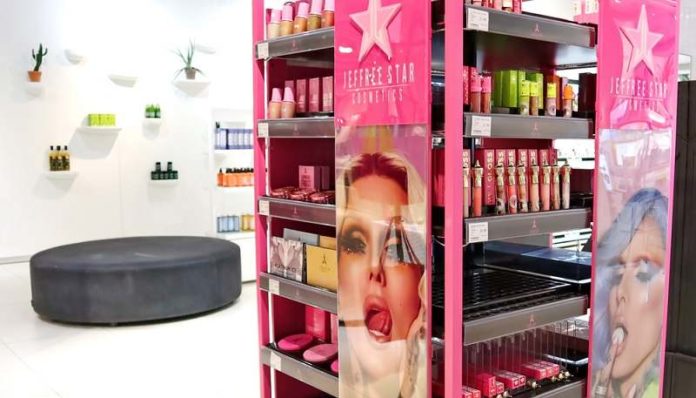The unprecedented pandemic and current cultural conversations have transformed the way businesses communicate. While consumers adjust to our new normal, companies continue to pivot to align with ongoing developments in our ever-changing climate. For marketers, this means being highly aware of messaging sensitivities. Marketers are expected to proceed with caution, striking just the right tone to acknowledge what is happening in the world without being disingenuous. But today, perception moves at the speed of light and so must our messages. Unfortunately, many companies have created muddled and even insensitive messaging that fails to resonate with the masses. Now more than ever, consumers are holding companies accountable for these missteps.
Here are examples of naming and messaging mistakes from brands and the lessons we can learn from them.
Fear-based Marketing: Tom Brady’s Protect
Super Bowl Champion Tom Brady received backlash for the recent release of a poorly named product from his TB12 supplement line. Brady launched his latest immunity blend called Protect, claiming it would support a healthy immune system. The brand received instant criticism for exploiting coronavirus fears. To audiences, it appeared that Brady was capitalizing on consumers’ apprehensions for profit. Even if the product was conceived pre-pandemic, the name and messaging were poorly timed. Fear-based marketing is a tactic to entice consumers to respond and act swiftly. However, in times of crisis and intense challenges, marketing should not scare. Messages should uplift and inspire. Before launching your business or product in a precarious marketplace, consult a team or poll an audience. This can provide needed insights to sentiment you weren’t aware existed.
Insensitive Naming: Jeffree Star’s Cremated
Beauty mogul and YouTuber Jeffree Star is no stranger to controversy. This time the spotlight was on his mid-May makeup collection launch. He neglectfully named his latest makeup palette Cremated. The collection featured eyeshadow colors called “The Morgue” and “Casket Ready”. Makeup enthusiasts were quick to criticize the tone-deaf product saying it was completely insensitive to the current global pandemic. In Star’s apology video, or lack thereof, he explained that the launch was already in the pipeline and as a business owner, he could not have any further delays or the product would expire. This is an example of not only bad timing but a business owner putting financials over customers’ feelings. In 2020, we’re at a crossroads of heightened emotion and nerves. Businesses must be aware and take accountability of how their messaging can impact consumers, especially when naming a business or product.
Poor Timing: Geico’s “The Perfect High Five”
Geico’s “The Perfect High Five” commercial featured a customer who switched to Geico’s insurance. She compared the feeling to giving “the perfect high five” and went into detail about the high fiving a colleague in the workplace. The seemingly innocent commercial and messaging would have been perfectly fine before March. However, as social distancing practices developed to promote health and safety, the commercial went from innocent to seemingly careless. The ad had many people on social media calling out Geico as irresponsible for allowing the ad to run during quarantine. One Twitter comment read “Geico doesn’t care.” The pushback put pressure on the company to finally stop the ads. As the pandemic evolves, so must advertising to ensure messaging fits with the current safety guidelines and protocols.
Disingenuous Support: L’Oréal’s Black Lives Matter
In response to Blackout Tuesday, many brands took to social media to support the Black Lives Matter movement as well as share their commitment to diversity and inclusion. However, many companies are receiving pushback for being disingenuous with their message. L’Oréal was one of those brands. L’Oréal put out a statement before Blackout Tuesday stating that they stand in solidarity with the Black community. However, entrepreneur and influencer Munroe Bergdorf was quick to call out the brand. Bergdorf worked with L’Oréal as a model but her contract was canceled in 2017 after she spoke out about racism in the wake of a neo-Nazi rally. Audiences quickly called-out L’Oréal for leveraging the movement as a PR opportunity. Companies are welcome to take part in social justice movements. In fact, many audiences encourage it. But messaging must come from an honest and sincere place. If there are skeletons in the closet, social media detectives will find them. Be prepared to learn and do better.
The underlying thread among all of these mistakes is context. If these campaigns ran months prior, they may have not generated such a negative response. As business owners and marketers, it’s not only important to pay attention to current events and news cycles, your team must analyze what ads and product launches you have running or in the pipeline. Without proper consideration, audiences will be quick to call your company out for being tone-deaf or even untrustworthy. This is the year that consumers are pleading with brands to be transparent, genuine, and authentic. And they are holding them accountable to that.
Darpan Munjal is the founder and CEO of Squadhelp.com, the world’s #1 brand naming platform and two-time Inc. 500 company. He frequently contributes thought leadership content on branding, naming, entrepreneurship, and technology to major publications including Forbes and Entrepreneur.
Jeffree Star stock photo by SariMe/Shutterstock







